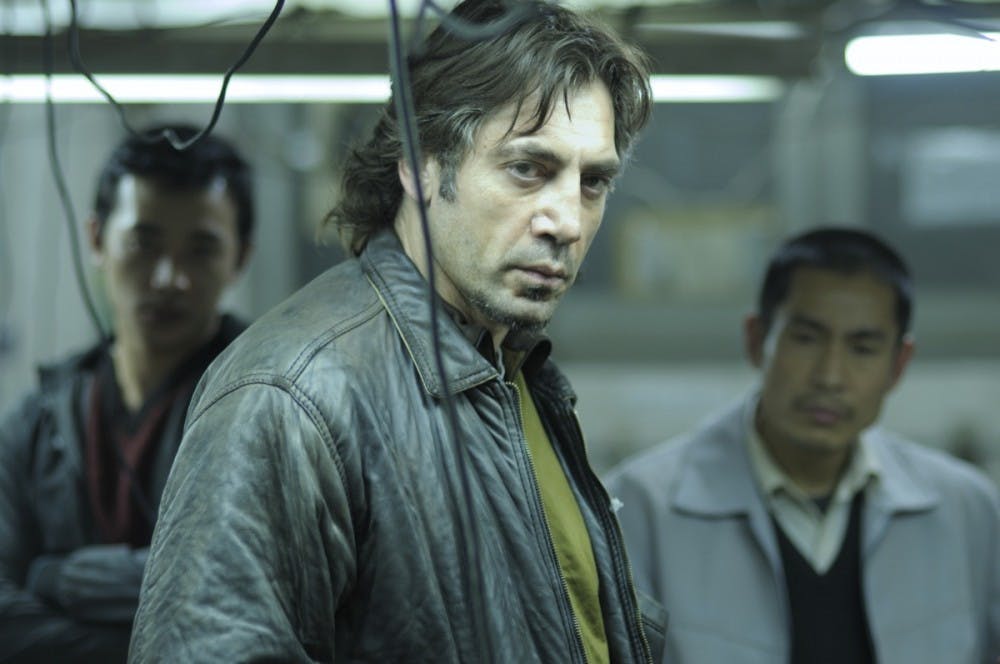Alejandro Gonzalez Inarritu does not make films that are easily digested. His friends and contemporaries, Alfonso Cuaron and Guillermo Del Toro, apply a lighter touch to their dark storylines, unafraid of stylistic cinematic escapism. But Inarritu clings harshly to his gritty realistic approach, this time with a film that is more inaccessible and alienating than anything in his impressive oeuvre.
Javier Bardem stars as Uxbal, a man for whom everything that can go wrong does. Surviving in the gritty underworld of modern Barcelona, Uxbal is a middleman in an industry that manufactures fake luxury items. He organizes the illegal smuggling of Chinese sweatshop workers and African sidewalk vendors looking to profit from tourists — of course, such a business is fraught with tragedies. On top of his volatile professional life, he is separated from a bipolar wife and struggles to bring up his innocent and loving children. Oh, and he’s also dying of cancer with only weeks left to live.
Biutiful would collapse under its own weight without the remarkable Bardem (who deservedly won Best Actor at Cannes) as its anchor. Despite his sins, Uxbal is an unflinchingly sympathetic character caught in a brutal environment. He suffers because he can’t do good no matter how hard he tries, so inescapable and self–perpetuating is his environment. He is haunted by the past, and Bardem perfectly captures the essence of a withering character with a soul desperately clinging on to life.
Thus, the film's shortcomings are rooted in Innarritu’s misguided choices. His script and direction are disappointingly heavy–handed, the result of perhaps feeling the need to outdo himself. Whereas in Amores Perros, 21 Grams and Babel Inarritu's ideas transcended the dour framework of his films, Biutiful is overwhelmed by its depressing subject matter and lags as a result. A remarkably shot, fast–paced chase sequence stands out precisely because the rest of the film is so stagnant. Too much is going on, and certain elements, such as ghosts hanging from the ceiling and a Chinese factory owner’s homosexuality, are more shocking than substantial. This feeling of sensationalism does not bode well alongside subject matter that is ripe material for exploitation.
Innaritu has proven himself in the past as a talented filmmaker, but with Biutiful it appears that he may be stuck in a rut. Let’s just hope he doesn’t try to make his fifth film even more demoralizing.

